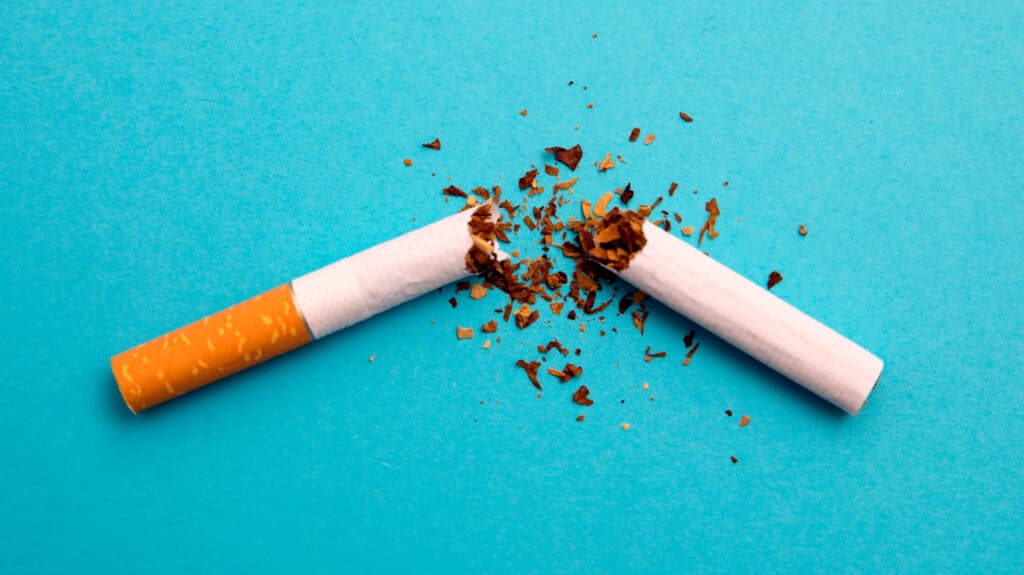If you or a family member are trying to quit smoking or vaping while in addiction recovery, there are several ways to do so. While some may consider drug treatment and quitting smoking, it can prove to be overwhelming to stop both all at once.
For others, however, simultaneously quitting drug use as well as tobacco use may prove beneficial. By focusing on your drug and tobacco addiction at the same time, you may find it easier to let go of both substances and become a nonsmoker.
Set A Firm Quit Date
Some rehab centers may not offer tobacco cessation programs. If this is the case, consider managing the quitting process on your own by setting a firm quit date.
When deciding to choose a quit date to become smoke-free, consider how quitting cold turkey will affect you. Although not recommended for substance abuse, quitting cold turkey can be beneficial for smokers wanting to be tobacco-free.
To quit cold turkey means to stop vaping, smoking cigarettes, or using e-cigarettes without tapering off of the cigarettes in segments.
Nicotine Replacement Therapy (NRT)
Instead of quitting smoking cold turkey, consider nicotine replacement therapy (NRT). With NRT, there are several ways in which a person can slowly receive lower doses of nicotine overtime, helping to treat nicotine addiction.
Some forms of NRT include:
- a nicotine patch
- nasal spray
- inhaler
- lozenges
- non-prescription smoking medications such as bupropion
By participating in NRT, you may experience reduced cravings and less nicotine withdrawal symptoms. According to the National Institute of Mental Health (NIMH), depression can be a symptom of nicotine withdrawal.
Smoking Cessation Treatment
Some rehab facilities offer smoking cessation treatment. If available, consider taking part in a smoking cessation program.
If not offered at your drug rehab center, there may be local programs you can take part in. A Nicotine Anonymous support group may be helpful as well.
Through smoking cessation treatment, you will be assisted by professionals to help you stop smoking.
Why Should You Quit Smoking?
Although there are numerous health benefits of quitting smoking, smoking can also contribute to serious health problems per the Centers for Disease Control and Prevention (CDC):
- lung cancer
- elevated heart rate
- high blood pressure
- carbon monoxide in your blood
- pneumonia
- chronic obstructive pulmonary disease (COPD)
- diabetes
- stroke
- chronic bronchitis
- problems with the immune system
According to the CDC, the percentage of adults ages 18 and older who currently smoke cigarettes is 11.2%. This poses a health risk to adolescents and young adults who may continue smoking throughout their life.
Consider quitting smoking and making healthier lifestyle choices.
If you or a loved one are struggling with drug or alcohol abuse, consider finding treatment at Northeast Addictions Treatment Center. At our facility, we offer a wide range of treatment options such as therapy, support groups, and more.
To learn more, please contact us today.
Keep Reading:
Sources:
- American Heart Association – 5 Steps to Quit Smoking and Vaping
- American Lung Association – Quit Smoking
- Centers for Disease Control and Prevention – Cigarette Smoking and Electronic Cigarette Use
- Centers for Disease Control and Prevention – Health Effects
- NHS – Vaping to Quit Smoking
- ScienceDirect – Impact of quitting smoking and smoking cessation treatment on substance use outcomes: An updated and narrative review

